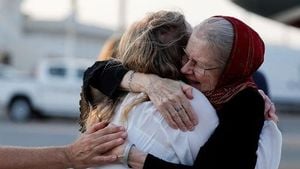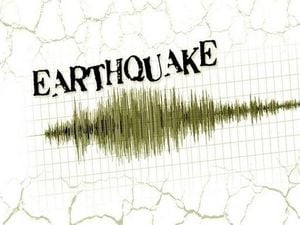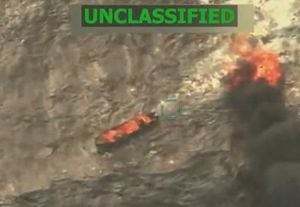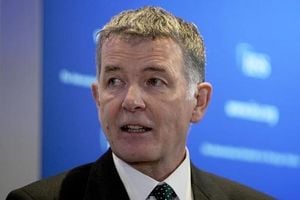Washington, D.C. has always been a city where the nation’s biggest debates play out, but rarely has its own safety and sovereignty been thrust so squarely into the national spotlight as in recent weeks. On August 20, 2025, Mayor Muriel Bowser and Metropolitan Police Department (MPD) Chief Pamela Smith stood before a crowd of educators, just days before the city’s K-12 students were set to return to school, and addressed the growing federal presence in the capital. Their message was clear: the city’s law enforcement landscape is changing, and not everyone is comfortable with the new normal.
The catalyst for this change? A surge of National Guard troops, now numbering close to 2,000, patrolling the streets of Washington, D.C. at the behest of President Donald Trump. According to 7News, the number of troops could nearly double in coming days, as three more Republican governors agreed to send reinforcements at the White House’s request. Already, National Guard units from Ohio, West Virginia, South Carolina, Louisiana, Mississippi, and Tennessee have arrived, forming the backbone of what the Trump administration calls a crackdown on crime in the capital.
This federal intervention has sparked heated debate across the political spectrum. Mayor Bowser minced no words when asked about the deployment: “I don’t think the National Guard should be used for law enforcement,” she said, emphasizing that troops should be reserved for “mission-specific items that benefit the nation.” She drew a clear line between supporting public safety and what she sees as the militarization of policing. “I don’t think you have an armed militia in the nation’s capital,” Bowser added, pushing back against the notion that the city was under a federal “takeover.”
Chief Smith, meanwhile, sought to assure residents that federal partnerships in law enforcement are nothing new for D.C. “Our officers are very well versed on D.C. law and code,” she told 7News, noting that collaboration with federal agencies like the ATF and DEA is routine. “The difference now is simply an enhanced presence,” Smith said. Her agency’s goal, she explained, is to “drive down crime while our partners are here.”
But the presence of the National Guard is not universally welcomed. As reported by McClatchy and The Washington Post, a recent survey found that eight in ten D.C. residents oppose the federal patrols on their streets. “Absolutely unnecessary,” one resident told The Washington Post. “Totally being done to distract attention from the Epstein files.” Another said, “I don’t feel safe with the possibility of untrained FBI agents and military personnel who are untrained to do police services patrolling our streets.” The skepticism is palpable, and the optics—armed troops in the heart of the nation’s democracy—have only fueled the controversy.
Political leaders outside D.C. have weighed in as well, often along party lines. South Carolina Governor Henry McMaster authorized the deployment of 200 National Guardsmen, saying they would “support President Trump in his mission to restore law and order to our nation’s capital.” McMaster was careful to note that the deployment would be funded by the federal government under Title 32, sparing state taxpayers. He also assured South Carolinians that the troops could be “immediately recalled” if Hurricane Erin or another disaster threatened the state. Still, South Carolina Democratic Party chairwoman Christale Spain called the move “reckless,” arguing, “Our men and women in uniform aren’t political pawns. They deserve respect, and their first duty is to protect South Carolina families, not to serve as props for a political stunt hundreds of miles away.”
Other governors, both Republican and Democrat, have declined the Trump administration’s request. Vermont’s Phil Scott, a Republican, refused to send troops, with his chief of staff explaining that “enforcement of domestic law” is not a proper use of the National Guard. Maryland’s Democratic Governor Wes Moore called the mobilization “deeply dangerous.” Their concerns echo a long-standing debate about the role of the National Guard—should it be used to police American streets, or is its purpose strictly to serve in times of emergency and disaster?
The Trump administration, for its part, has pressed forward. White House press secretary Karoline Leavitt stated, “President Trump will not be deterred by soft on crime Democrats and media activists who refuse to acknowledge this rampant violence on our streets. He is going to make our nation’s capital the most beautiful and safe city on Earth.” According to The Washington Post, the Army initially stated on August 14, 2025, that the National Guard’s mission was “to provide a visible presence in key public areas, serving as a visible crime deterrent.” Weapons would remain in the armory but be “available if needed.” By August 16, a White House spokesman clarified that troops “may be armed” but would not be making arrests “at this time.”
Yet, as missions often do, this one may evolve. The question of transparency looms large. The White House has been releasing daily arrest tallies related to the operation, but details about those arrests—such as the location, date, and description of the offense—are not being made public. “The lack of specificity creates circumstances in which it is hard to say who is being arrested and who’s arresting them,” The Washington Post reported, raising alarms about accountability and open government. As one McClatchy columnist put it, “It’s impossible to know now whether this show of force will have a lasting impact on crime, but it’s easy to be appalled at the optics and aghast at the secrecy.”
Crime statistics themselves are now a point of contention. In January 2025, outgoing U.S. attorney Matthew M. Graves announced that violent crime in D.C. was at its lowest in over 30 years, crediting targeted investigations and prosecutions. But the Trump administration has cast doubt on those numbers, launching an investigation led by new U.S. attorney Jeanine Pirro. Even interim U.S. attorney Ed Martin Jr. cited a 25% drop in violent crime earlier this year, crediting Trump with the improvement. Yet, as The Washington Post noted, “no one is seeing the details.”
The legal framework for this deployment is also in flux. The president can deploy the National Guard to D.C. for 30 days under an emergency declaration, but any extension would require Congressional approval—a hurdle that seems unlikely to be cleared in the current political climate. For now, D.C. residents and the nation at large are left to wonder: How long will this last? What will be the long-term effects on the city’s safety, its autonomy, and the public’s trust in government?
History offers a cautionary tale. The memory of the 1970 Kent State shootings—when the Ohio National Guard killed four unarmed students—still haunts the American psyche. While today’s mission is different, the echoes of that tragedy serve as a reminder of the risks when military and law enforcement roles blur. As one observer put it, “This is not four dead in Ohio, but it sure feels like the slow death of open government.”
For now, Washington, D.C. finds itself at the crossroads of public safety, federal authority, and civil liberties—a place it knows all too well. The coming weeks will reveal whether this surge brings the promised peace, or simply deepens the city’s divisions.



